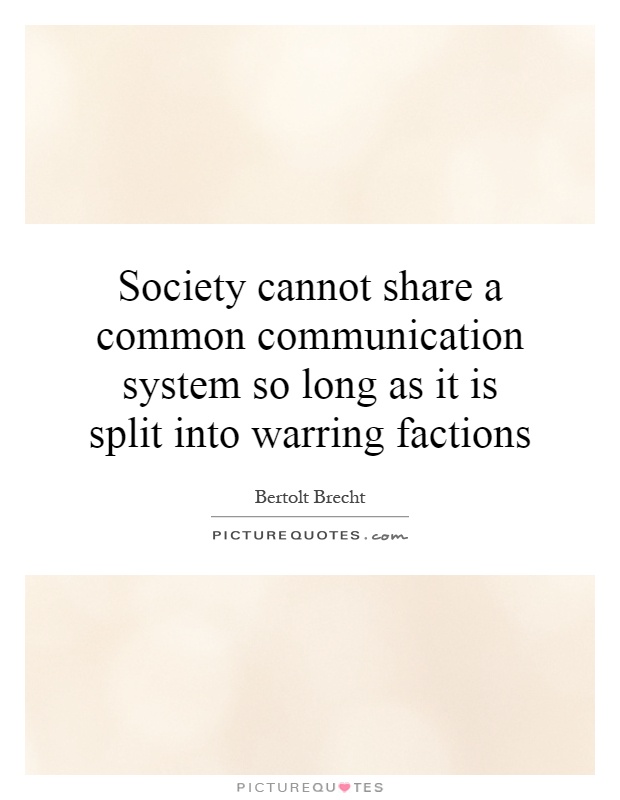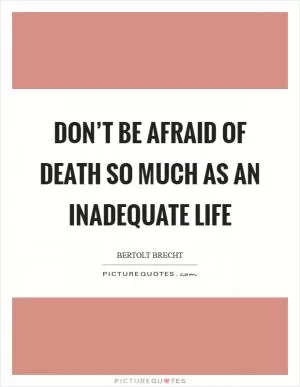Society cannot share a common communication system so long as it is split into warring factions

Society cannot share a common communication system so long as it is split into warring factions
Bertolt Brecht, a renowned German playwright and poet, was known for his critical views on society and politics. His works often reflected the social and political turmoil of his time, particularly during the rise of fascism in Europe. One of Brecht's key beliefs was that a society divided by warring factions could not effectively communicate with one another, leading to further conflict and division.In Brecht's view, communication is essential for a society to function cohesively and effectively. Without a common communication system, individuals and groups within a society are unable to understand each other's perspectives, leading to misunderstandings, mistrust, and ultimately, conflict. This lack of communication can be exacerbated when society is split into warring factions, each with its own agenda and interests.
When factions within society are at odds with one another, communication becomes even more challenging. People are less likely to listen to opposing viewpoints, instead choosing to surround themselves with like-minded individuals who reinforce their own beliefs. This echo chamber effect further deepens the divide between factions, making it difficult for them to find common ground and work towards a shared goal.
Brecht believed that in order for society to overcome these divisions, it must first establish a common communication system that allows for open dialogue and exchange of ideas. This system should be inclusive, allowing all voices to be heard and considered, regardless of their background or beliefs. By fostering a culture of communication and understanding, society can begin to bridge the gaps between warring factions and work towards a more unified and harmonious future.












 Friendship Quotes
Friendship Quotes Love Quotes
Love Quotes Life Quotes
Life Quotes Funny Quotes
Funny Quotes Motivational Quotes
Motivational Quotes Inspirational Quotes
Inspirational Quotes